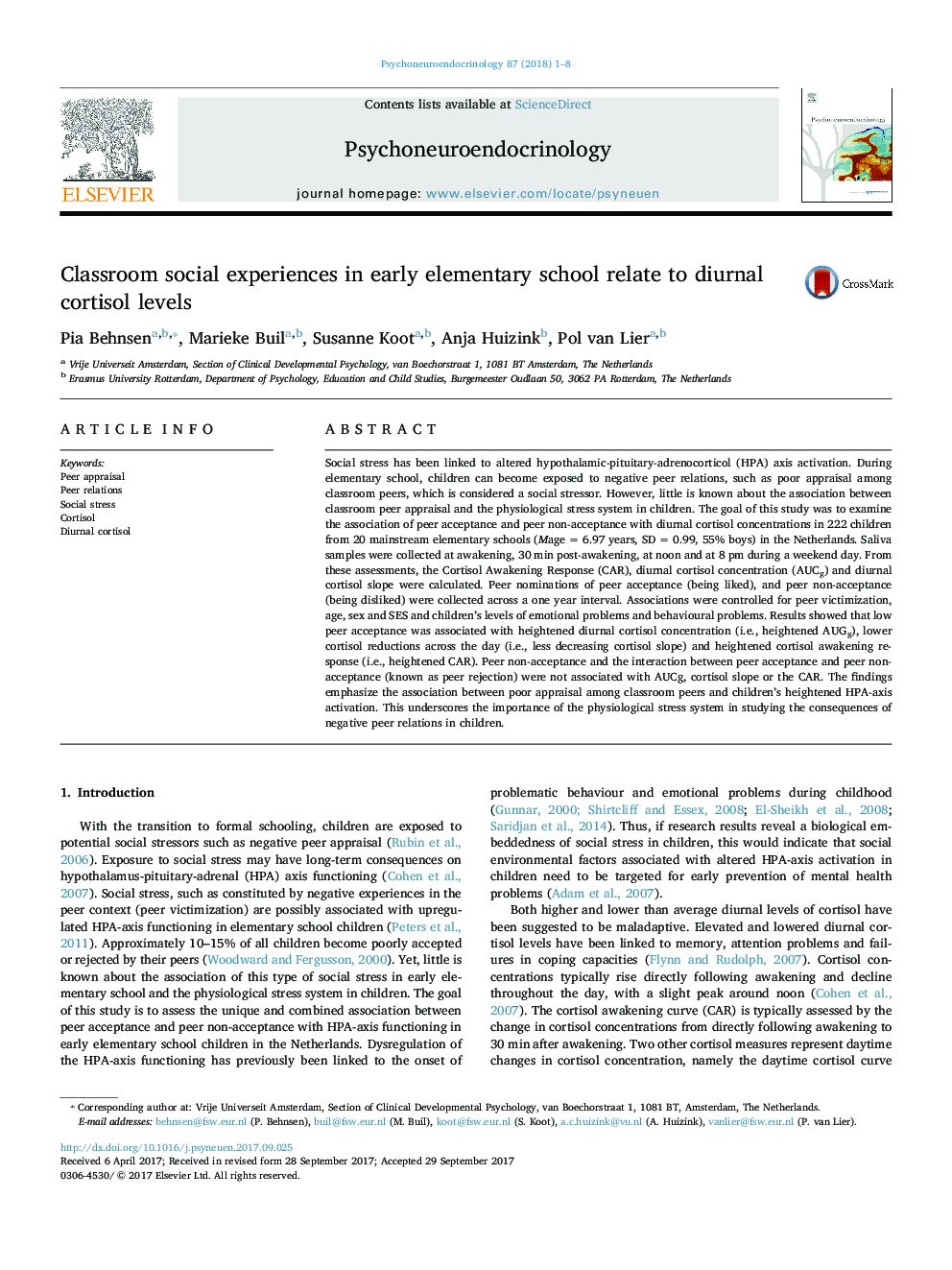| کد مقاله | کد نشریه | سال انتشار | مقاله انگلیسی | نسخه تمام متن |
|---|---|---|---|---|
| 4934154 | 1433956 | 2018 | 8 صفحه PDF | دانلود رایگان |
- The association of peer acceptance and peer non-acceptance on changes in diurnal cortisol concentration in elementary school children was examined.
- Low peer acceptance was associated with heightened diurnal cortisol output and lower cortisol reductions across the day.
- Peer non-acceptance and the interaction with peer acceptance (peer rejection) were not associated with diurnal cortisol.
- Findings emphasize the association between poor appraisal among classroom peers and children's heightened HPA-axis activation.
Social stress has been linked to altered hypothalamic-pituitary-adrenocorticol (HPA) axis activation. During elementary school, children can become exposed to negative peer relations, such as poor appraisal among classroom peers, which is considered a social stressor. However, little is known about the association between classroom peer appraisal and the physiological stress system in children. The goal of this study was to examine the association of peer acceptance and peer non-acceptance with diurnal cortisol concentrations in 222 children from 20 mainstream elementary schools (Mage = 6.97 years, SD = 0.99, 55% boys) in the Netherlands. Saliva samples were collected at awakening, 30 min post-awakening, at noon and at 8 pm during a weekend day. From these assessments, the Cortisol Awakening Response (CAR), diurnal cortisol concentration (AUCg) and diurnal cortisol slope were calculated. Peer nominations of peer acceptance (being liked), and peer non-acceptance (being disliked) were collected across a one year interval. Associations were controlled for peer victimization, age, sex and SES and children's levels of emotional problems and behavioural problems. Results showed that low peer acceptance was associated with heightened diurnal cortisol concentration (i.e., heightened AUGg), lower cortisol reductions across the day (i.e., less decreasing cortisol slope) and heightened cortisol awakening response (i.e., heightened CAR). Peer non-acceptance and the interaction between peer acceptance and peer non-acceptance (known as peer rejection) were not associated with AUCg, cortisol slope or the CAR. The findings emphasize the association between poor appraisal among classroom peers and children's heightened HPA-axis activation. This underscores the importance of the physiological stress system in studying the consequences of negative peer relations in children.
Journal: Psychoneuroendocrinology - Volume 87, January 2018, Pages 1-8
